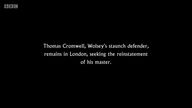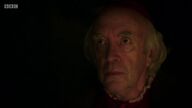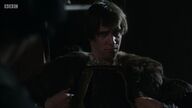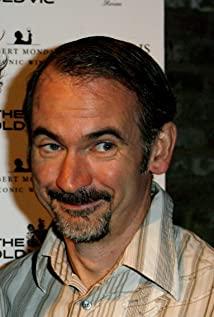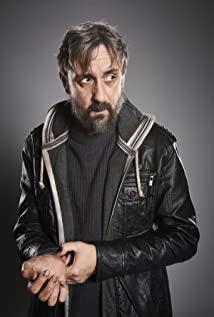This play tells the history of Anne Boleyn from the stage to the guillotine from the perspective of Thomas Cromwell. You need to have a certain degree of understanding of British history to understand it more clearly. When I was watching "Another Boleyn Girl", I felt that in pursuit of the legendary story of the Boleyn sisters, the film overemphasized love, hatred and personal influence, and placed the fate of the empire on the sisters. The beauty of the character is naturally too naive. "Wolf Hall" reveals to us the complex intertwining of personal passions, religious beliefs and partisan struggles in monarchy politics. My biggest impression of the British society and politics under Henry VIII, as depicted in Wolf Hall, is the animal nature of human beings. The behavior of the masses when they watched the two beheadings was the same as the reaction of the masses when the Peking Market was beheading the Six Gentlemen of the Hundred Years. Parliamentary dignitaries in several trials (Kahterin of Aragon, Thomas More, Anne Boleyn), like a vulture stalking a dying animal. And after Henry VIII decided to abandon the dead queen and set up a new one in order to give birth to an heir, the picture of him with Queen Pauline and Her Royal Highness was not a happy family at all. He stared at his mother. The woman took out the meat scraps between her teeth with her hands, very much like a beast trying to kill its prey. Therefore, the masses are ruthless people, the parliamentarians are ruthless people, and the king is ruthless people. Cromwell was dealing with a group of people, and the actor used a relatively modest performance to reflect a political ukiyo-e like a mirror. Besides Cromwell in the whole play, two of my favorite performances are Cromwell and Thomas Moore at the Tower of London and the Queen on the Guillotine. The actors did a very good interpretation. In addition, my favorite setting is how Cromwell, the master who was loyal to himself, who remained heartfelt even after he lost power, turned into a ruthless man who designed to kill the queen. Cromwell is still relatively warm in the first half of the play, faithfully helping the lost bishop, and interacting with his wife and daughter more friendly. But after the death of himself and his daughter and the forced death of the bishop, Cromwell's vision basically turned to political activism. He slowly received the favor of Henry VIII, approached the center of power, and rose step by step. When he obeyed the emperor's decree to deal with and kill his respected Thomas More, he found that he could no longer retreat. Henry directly helped him expose the reality: Do you think I reused you because of your charisma? I just want you to help me with these "tricky" things. So when Henry clearly expressed his regret for marrying Ambrose in his conversation with him later, he clearly understood, "Henry wants to divorce her... I have to push her (to death)." Henry VIII Need a ruthless person to help him do ruthless things, such as helping him divorce the queen, then he will expose the queen and multiple adultery (we never see any evidence in the play that the queen is actually cheating) , then he will try his best to coerce and lure the "lovers" to confess and create evidence. He needs to design the queen's infidelity and do ruthless things, so that the emperor can be the innocent person, the perfect prince who is affectionate and righteous. As for whether the queen is really cheating? Doesn't matter anymore. We can see that the actor is more relaxed at the beginning of his performance of Cromwell, although he is a cautious person, he can still joke and sing a little key, and finally when Henry hugs him to celebrate the decapitation of Queen Pauline's head , you can't read any information in his eyes. On the other hand, the people he "framed" were basically people who were bishops back then, and revenge was an act of sentience, which complicated Cromwell's personality and formed such a sentient and Heartless people.
View more about Wolf Hall reviews



